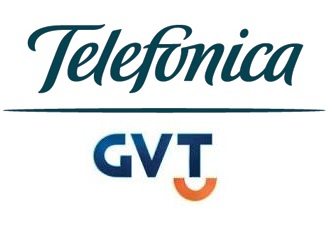The greater the number of competitors, the better for the user, said Brazil’s minister of communications, Paulo Bernardo, to members of the press this week. Those comments came on the heels of Telefónica’s bid to buy Vivendi’s Brazilian unit GVT. Telefónica hopes to combine its Vivo operations, which counts the most customers in Brazil, with GVT, which offers fixed telephony, broadband and pay-TV services. Without discussing the matter further, Bernardo said the Administrative Council for Economic Defense will evaluate regulatory issues if a deal emerges.
Telefónica has made a cash consideration of about $5.25 billion and newly issued shares representing 12% of the share capital of the new Telefónica Brasil, should it move forward with a combination with GVT. Considering the current market price of Telefónica Brasil, the offer amounts to a total of about $8.82 billion.
In a press release, Telefónica explained that the cash consideration would be financed via a capital increase at Telefónica Brasil subscribed by Telefónica S.A. in proportion to its current stake (74%), whose contribution will be funded, in turn, via a capital increase.
Macquarie Capital’s Kevin Smithen noted in a statement that the firm believes Telefónica’s bid for GVT was a preemptive strike against AT&T’s entry into Brazil.
“Telefónica Brasil retains its financial flexibility for further Brazilian consolidation, especially in the wireless space,” Smithen said. “We believe that while Telefónica will be highly levered, it could still participate in a club bid for TIM Brasil if Telecom Italia is a seller and if Oi is able to raise capital to fund its portion of a deal.”
Significant consolidation has already taken place among Brazil’s largest operators, with América Móvil combining Claro, Embratel and NET Servicos, the country’s largest cable operator. “The wave of consolidation among Brazil’s broadband providers will continue, as Telefónica looks to solidify its market leadership and build scale, especially in the highly competitive markets of Rio and São Paulo,” said Jeff Heynen, principal analyst for broadband access and pay-TV at Infonetics. The research firm forecasts that fixed-broadband revenue in Brazil will reach $288 million by 2018.
In the first quarter of 2014, Telefónica announced that its revenue increased by 1.4% in organic terms to $33.42 billion. In the second quarter, revenue grew 1.3% organically and showed the acceleration of revenue growth in mobile data (9.2% organic growth) and non-text messaging data (24.1%). As for Brazil, the telco said that the unit has captured more than 60% of net gains in the contract market for the fourth consecutive quarter.
Some local newspapers in Latin America say that the GVT bid would delay Telefónica’s plan to buy Iusacell in Mexico.
700 MHz: The auction for 700 MHz spectrum licenses in Brazil will be delayed. Brazil’s TCU audit court has made some comments on the document presented by telecom regulator Anatel.
The auction was expected to begin in September before the country’s Oct. 4 elections. TCU gave Anatel 15 days to provide more information and respond to questions. However, the court did not disclose which aspects are under evaluation, although they are said to be related to the switch-off procedure.
Mobile up: Costa Rica announced that it reached more than 7.1 million mobile subscribers at the end of 2013, which was a 32% increase compared to the previous year. Of that total, 81% are prepaid customers. The total investment in the wireless space for 2013 was $190.6 million. Instituto Costarricense de Electricidad still leads the market, though it has lost seven percentage points year-over-year. ICE closed 2013 with 64% market share; Claro and Movistar had 18% each.
More news from the Latin American region:
- Mexican billionaire Ricardo Salinas won’t sell his 50% stake in Mexico wireless carrier Grupo Iusacell. Telefónica, which is the No. 2 mobile phone company in Mexico, has already announced it wishes to buy Grupo Salinas’ stake in Iusacell.
- Less than a month after the launch of its operations in Peru, Viettel has reportedly attracted 15,000 mobile subscribers.
- State-owned telecoms operator Empresa Hondurena de Telecomunicaciones (Hondutel) has managed to curb its losses by 55.7% year-on-year in the first half 2014, reporting a deficit of $6.39 million for the first six months of the fiscal year ending June 30.
- Brazil’s Anatel approved the merger of Carlos Slim’s companies Claro, Embratel and NET operations. The companies will continue to operate under different and unique brands. Claro will be listed as a public company in Brazil’s stock-exchange.
- TIM’s data users grew 24% year-over-year reaching 39% of its total base. There were 30.2 million 3G users, which was a 77% year-over-year increase. In its second quarter results, the company revealed that its postpaid customer base mix grew to 16.5% from 15.7% during the second quarter of last year.
- Millicom said that the proposed merger of its Columbian Tigo operation with UNE has received the last of the necessary regulatory approvals from the country’s finance superintendent.
- Furukawa has announced a new manufacturing plant in Colombia, following an investment of $5 million.
Wondering what’s going on in Latin America? Why don’t you follow me on Twitter? Also check out all of RCR Wireless News’ Latin American content.

